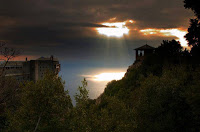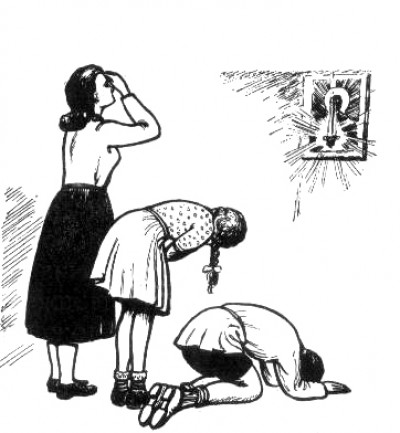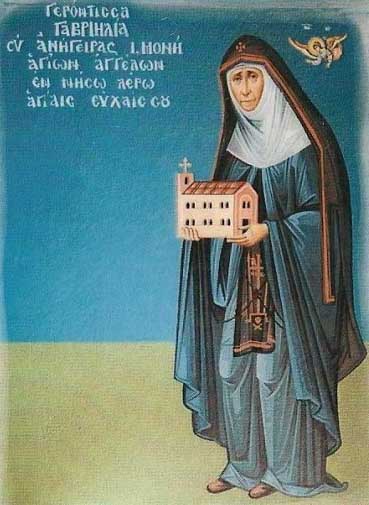
An astonishing miracle for a newborn from St. Ephraim of Nea Makri (amateur translation)
I wish, in my own manner, to thank God and St. Ephraim for the miracle which I was made worthy to experience.
I was pregnant, and 12/29/01 was my given due date. When that date came, and I still was not in labor, my doctor gave me another week. On the morning of January 2nd 2002 I began to experience strong pains, and I went to the Hospital. I was checked, and told that my Obstetrician would be called, because I was most likely in labor.
In a short time, the next day (January 3rd), the day of St. Ephraim, I gave birth. The child was born with a dark color, however, due to the lack of Oxygen, and began to cry after 30 minutes. This had occurred within me (as my labor was delayed), and I was in immediate danger also. The child was suffering from apnea, and they did not remove him from the incubator, so that they could support him with Oxygen, with the result being suffering continuous seizures. They took him that evening to the Children's Hospital “Agia Sophia”, and the physicians there diagnosed that the child was suffering from cerebral edema. The ground fell from beneath my feet, and the doctors did not give us much hope...They told us to pray that he leave this life (the child would either die, or we would receive him as a vegetable, for the seizures had destroyed his internal organs, and my baby's beating heart was weak). His situation remained critical, and our only hope was God and St. Ephraim, both of whom we entreated daily.
In 13 days, there was a second encephalogram, when the doctors did not want to tell us to results, so that we not be given hope. After two days, they announced the new results, that our child was totally well, and they did not understand how this occurred, as they thought he was doomed. Here I should say that during these 13 days, St. Ephraim revealed himself to us many ways.
My one aunt saw a dream: she was within a Church of St. Ephraim, and there was a little boy who was crying continuously. She picked him up to calm him down, and she got up and walked. When my aunt told us this, she went with my mother to the same Church. On the road, my mother asked St. Ephraim to show her some sign. As she was lighting her vigil lamp, it went out, and she thought that this was a sign that my child had died. When she went to light it again, before she could get the lighter out, it lit itself again alone. Then she understood that my child was alive, and that the very powerful St. Ephraim would help him. In my house, we heard knocking from our icons, and the odor of incense filled all of our rooms.
My baby stayed 17 days in the NICU. After all that I related above, he remained another 13 days in a normal room, where they began to slowly feed him some milk. After this, we were able to bring him home.
Time passed, and we had to go for follow-up in two months. A few days before, my other aunt saw a dream: she was in my house for a visit, and there was a young man with her with a white shirt and black pants. The young man came for the first time to my house, and I began to welcome him. Before I could show him his bedroom, he entered my room by himself, where I had the baby, and began to unbutton his cufflinks. When I prepared something to treat him, my aunt called him, and he told her: “Go ahead, I will stay to watch over the child.”
Then I felt at ease, because I knew that my child would have a protector throughout his life. At his first check-up, we saw a very good professor at the Hospital, and when she read his history, she called her co-workers, saying: “Come see the miracle of the century.”
The whole episode which my child endured left him only with damage to his auditory nerve, for which he wears a hearing aid. I thank the All-powerful God from the depths of my heart, for He is always with us, and grants His might to the Saints to work wonders, and to protect us during the difficult times of our lives.
Through the prayers of our Holy Fathers, Lord Jesus Christ our God, have mercy on us and save us! Amen!
http://full-of-grace-and-truth.blogspot.ca/2012/12/a-miracle-for-newborn-from-st-ephraim.html








